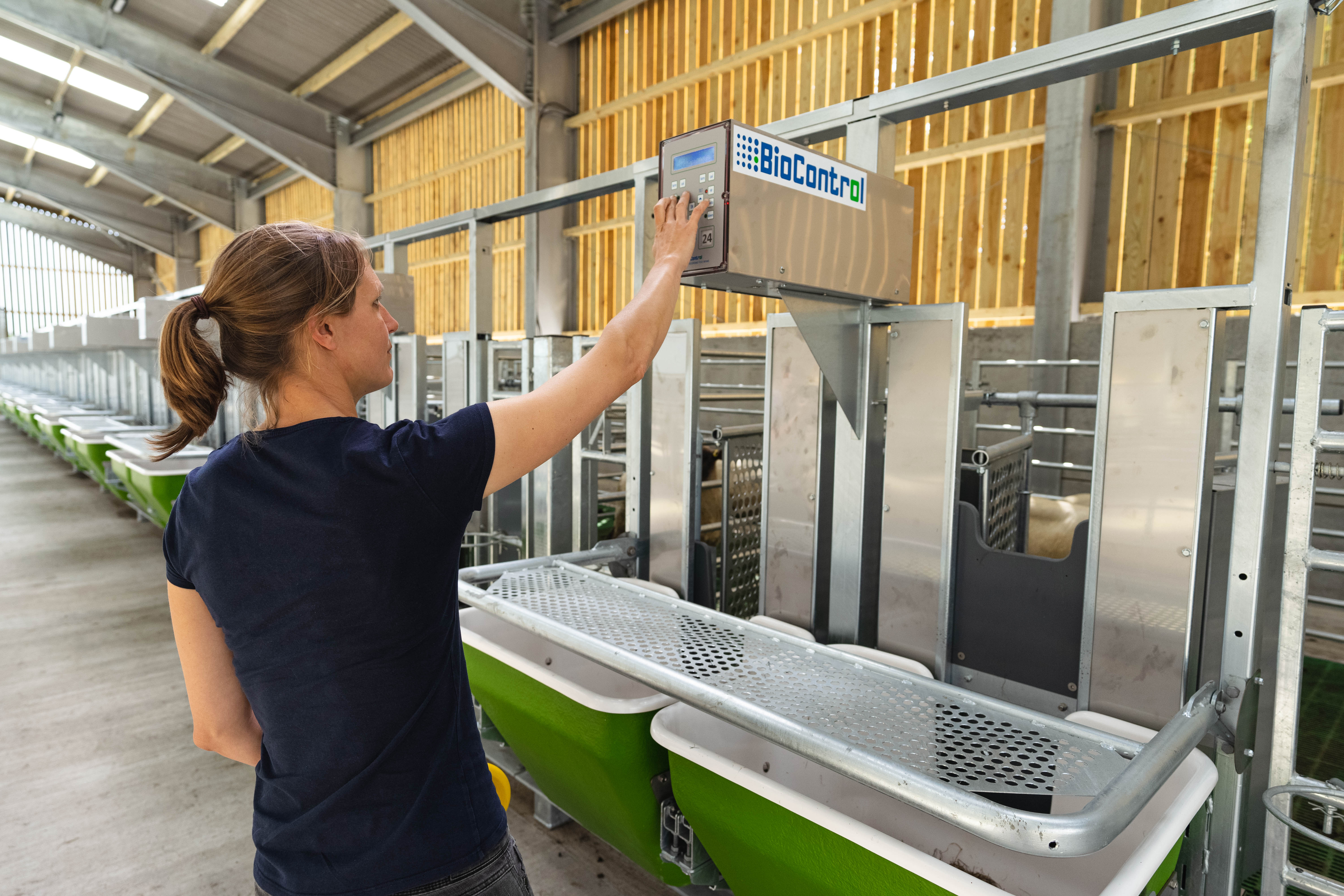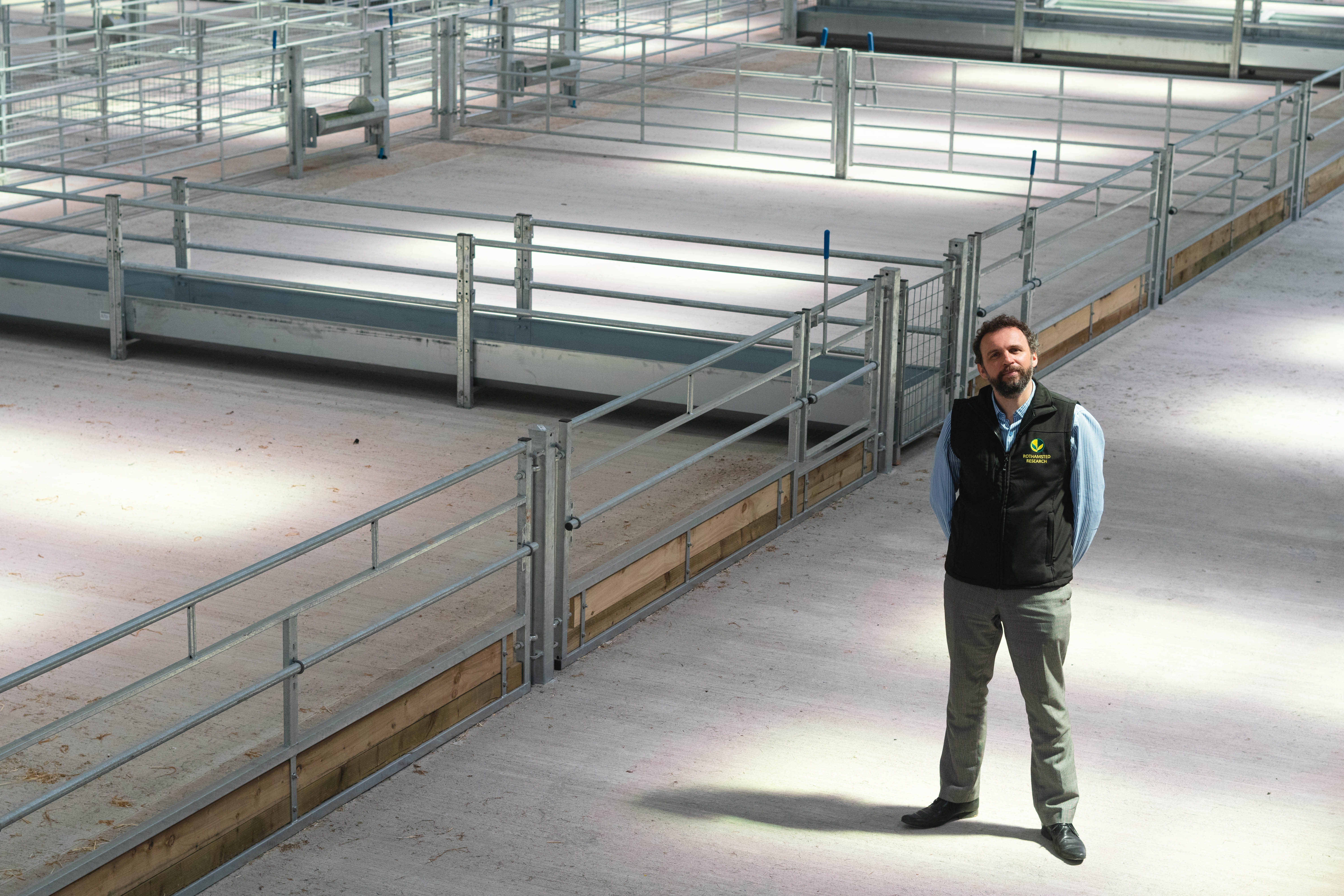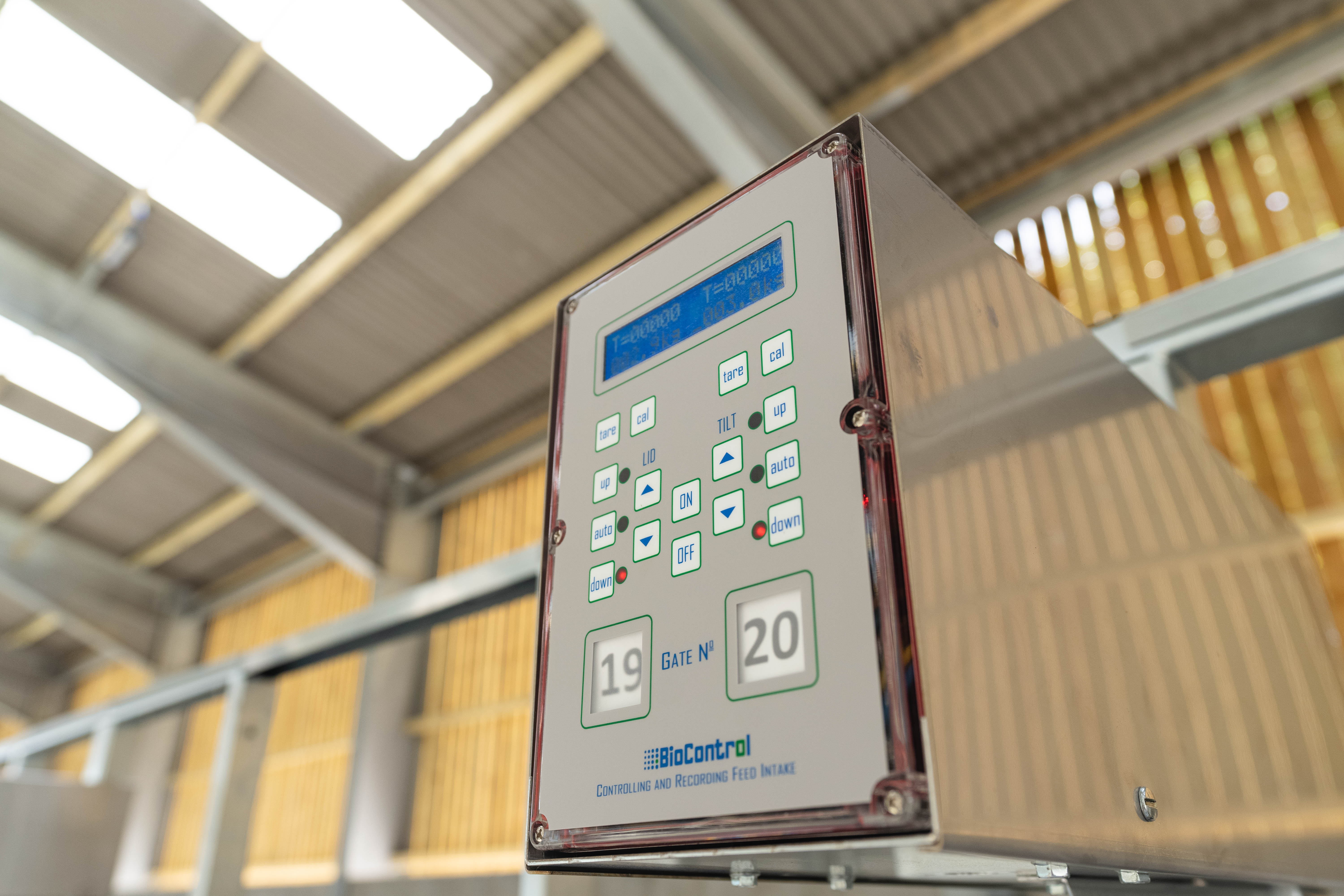The big picture: using wildflower strips for pest control
A new high-tech ‘sheep shed’ has been unveiled which will allow Rothamsted researchers to monitor the impacts of livestock in real-world farming systems.
The new facility, which can also accommodate goats, is part of Rothamsted’s ‘farm lab’at its North Wyke site near Okehampton, Devon, where it measures how sustainable different farming methods are
It will help scientists study different ways of rearing and producing lamb – and examine whether a switch away from red meat is good for the environment in the UK.
The ‘farm lab’ or Farm Platform is in fact three self-contained farms where every relevant input such as fertiliser and manpower, and all key outputs including pollutants in water runoff from fields, greenhouse gases and, ultimately profits, are monitored.
The Robert Orr Small Ruminant Facility will become an integral part of the Farm Platform and will house 400 or more ewes and up to 60 goats, with group and single pen facilities for feeding and behavioural research trials, including 24 automatic feeding pens.

It will keep the flocks reared on the different farming systems separate over winter to fully examine and compare the environmental and efficiency benefits of each.
It will do this by allowing researchers to measure the nutrients taken in, animal growth, urine and faeces produced, and the greenhouse gases being emitted by the sheep, individually or in groups, during housing.
Professor Michael Lee, head of the North Wyke site, said agricultural research often focused on individual animals or field-scale trials, and it was not always easy to extrapolate that up to the level of the farm.
“All the research we do, the leading stakeholder is the farmer, to help them improve their productivity, sustainability, reduce emissions and improve efficiency generally.
“Instead of doing that at a field or animal scale, let’s do that at a farm scale.”

For four years, the three farming systems tested have been permanent pasture which uses fertiliser, a quasi-organic system which relies on natural nutrients such as manure, and a short-term lay system which sees farmers ploughing and sowing grass crops for feed.
“There’s been a lot of press about the detrimental impact of grazing livestock on the environment,” says Prof Lee, but there was no real evidence on the impact of removing ruminants such as sheep and cattle from the food chain.
“We want to run these experiments so we can have enough data to show the true impacts,” he said.
He added that the idea was to look at if it was possible to develop a system which utilises the natural benefits of grazing animals such as cattle and sheep for food security.
The facility was built through the help of CIEL (Centre for innovation and Excellence in Livestock) as a further development of the BBSRC North Wyke Farm Platform National Capability to allow complete separation of its three research flocks, but also as a research facility in its own right.
Lyndsay Chapman, chief executive of CIEL, said: “It’s exciting to see the Orr sheep facility come to fruition.
“Its versatility, combined with the expertise of the North Wyke team, make it ideal for supporting a broad range of projects across health, welfare, nutrition and behaviour.
“Working together with industry, we’re delivering valuable solutions for a sustainable livestock sector.”
The facility is capable of developing tailor made research trials to address industry needs. These include:
· Effect of various forage types and protein supplements on the performance of ewes during pregnancy and early lactation.
· The effect of supplemental minerals on the performance of ewes and lambs.
· The effects of sire breed on lamb performance and carcass quality.
· Effect of feed supplements on the health and wellbeing of ewes, and potential impact on ecto-parasites.
· The fate of water during rumen metabolism in goats and sheep.
For SMEs in Devon, Cornwall and Isle of Scilly, there is potential opportunity to apply for innovation grants through the regionally funded ERDF program, Agritech Cornwall and Impact Lab.
There is also funding available through Innovate UK via its various funding competitions under the Industrial Challenge Fund.
The facility can also play host to farmer groups interested in sheep production systems and as a tool to demonstrate recent research findings to help improve on-farm management.

Rothamsted Research is the longest-running agricultural research institute in the world. We work from gene to field with a proud history of ground-breaking
discoveries in areas as diverse as crop management, statistical interpretation and soil health. Our founders, in 1843, were the pioneers of modern
agriculture, and we are known for our imaginative science and our collaborative approach to developing innovative farm practice.
Through independent research, we make significant contributions to improving agri-food systems in the UK and internationally, with
economic impact estimated to exceed £3 bn in annual contribution to the UK economy. Our strength lies in our systems approach, which combines strategic research,
interdisciplinary teams and multiple partnerships.
Rothamsted is home to three unique National Bioscience Research Infrastructures which are open to researchers from all over the world:
The Long-Term Experiments,
Rothamsted Insect Survey and the
North Wyke Farm Platform.
We are strategically funded by the Biotechnology and Biological Sciences Research Council (BBSRC), with additional support from other national and
international funding streams, and from industry. We are also supported by the Lawes Agricultural Trust (LAT).
The Biotechnology and Biological Sciences Research Council is part of UK Research and Innovation, a non-departmental public body funded by a grant-in-aid
from the UK government.
BBSRC invests to push back the frontiers of biology and deliver a healthy, prosperous and sustainable future. Through our investments, we build and support a vibrant,
dynamic and inclusive community which delivers ground-breaking discoveries and develops bio-based solutions that contribute to tackling global challenges,
such as sustainable food production, climate change, and healthy ageing.
As part of UK Research and Innovation (UKRI), we not only play a pivotal role in fostering connections that enable the UK’s world-class research and innovation system
to flourish – we also have a responsibility to enable the creation of a research culture that is diverse, resilient, and engaged.
BBSRC proudly forges interdisciplinary collaborations where excellent bioscience has a fundamental role. We pioneer approaches that enhance the equality, diversity,
and inclusion of talent by investing in people, infrastructure, technologies, and partnerships on a global scale.
The Lawes Agricultural Trust, established in 1889 by Sir John Bennet Lawes, supports Rothamsted Research’s national and international agricultural science through the provision of land, facilities and funding. LAT, a charitable trust, owns the estates at Harpenden and Broom's Barn, including many of the buildings used by Rothamsted Research. LAT provides an annual research grant to the Director, accommodation for nearly 200 people, and support for fellowships for young scientists from developing countries. LAT also makes capital grants to help modernise facilities at Rothamsted, or invests in new buildings.